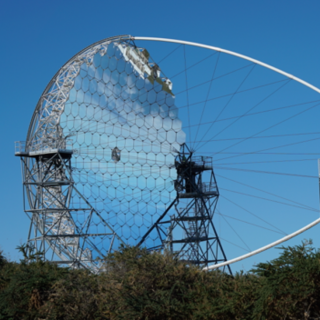Bibcode
Ahnen, M. L.; Ansoldi, S.; Antonelli, L. A.; Arcaro, C.; Babić, A.; Banerjee, B.; Bangale, P.; Barres de Almeida, U.; Barrio, J. A.; Becerra González, J.; Bednarek, W.; Bernardini, E.; Berti, A.; Biasuzzi, B.; Biland, A.; Blanch, O.; Bonnefoy, S.; Bonnoli, G.; Borracci, F.; Bretz, T.; Carosi, R.; Carosi, A.; Chatterjee, A.; Colin, P.; Colombo, E.; Contreras, J. L.; Cortina, J.; Covino, S.; Cumani, P.; Da Vela, P.; Dazzi, F.; De Angelis, A.; De Lotto, B.; de Oña Wilhelmi, E.; Di Pierro, F.; Doert, M.; Domínguez, A.; Dominis Prester, D.; Dorner, D.; Doro, M.; Einecke, S.; Eisenacher Glawion, D.; Elsaesser, D.; Engelkemeier, M.; Fallah Ramazani, V.; Fernández-Barral, A.; Fidalgo, D.; Fonseca, M. V.; Font, L.; Fruck, C.; Galindo, D.; García López, R. J.; Garczarczyk, M.; Gaug, M.; Giammaria, P.; Godinović, N.; Gora, D.; Guberman, D.; Hadasch, D.; Hahn, A.; Hassan, T.; Hayashida, M.; Herrera, J.; Hose, J.; Hrupec, D.; Hughes, G.; Idec, W.; Ishio, K.; Kodani, K.; Konno, Y.; Kubo, H.; Kushida, J.; Lelas, D.; Lindfors, E.; Lombardi, S.; Longo, F.; López, M.; Majumdar, P.; Makariev, M.; Mallot, K.; Maneva, G.; Manganaro, M.; Mannheim, K.; Maraschi, L.; Mariotti, M.; Martínez, M.; Mazin, D.; Menzel, U.; Mirzoyan, R.; Moralejo, A.; Moretti, E.; Nakajima, D.; Neustroev, V.; Niedzwiecki, A.; Nievas Rosillo, M.; Nilsson, K.; Nishijima, K.; Noda, K.; Nogués, L.; Nöthe, M. et al.
Bibliographical reference
Astronomy and Astrophysics, Volume 603, id.A25, 15 pp.
Advertised on:
7
2017
Journal
Citations
28
Refereed citations
28
Description
Context. The extragalactic very-high-energy gamma-ray sky is rich in
blazars. These are jetted active galactic nuclei that are viewed at a
small angle to the line-of-sight. Only a handful of objects viewed at a
larger angle are so far known to emit above 100 GeV. Multi-wavelength
studies of such objects up to the highest energies provide new insights
into the particle and radiation processes of active galactic nuclei. Aims: We aim to report the results from the first multi-wavelength
campaign observing the TeV detected nucleus of the active galaxy IC 310,
whose jet is observed at a moderate viewing angle of 10°-20°.
Methods: The multi-instrument campaign was conducted between 2012
November and 2013 January, and involved observations with MAGIC, Fermi,
INTEGRAL, Swift, OVRO, MOJAVE and EVN. These observations were
complemented with archival data from the AllWISE and 2MASS catalogs. A
one-zone synchrotron self-Compton model was applied to describe the
broadband spectral energy distribution. Results: IC 310 showed an
extraordinary TeV flare at the beginning of the campaign, followed by a
low, but still detectable TeV flux. Compared to previous measurements in
this energy range, the spectral shape was found to be steeper during the
low emission state. Simultaneous observations in the soft X-ray band
showed an enhanced energy flux state and a harder-when-brighter spectral
shape behavior. No strong correlated flux variability was found in other
frequency regimes. The broadband spectral energy distribution obtained
from these observations supports the hypothesis of a double-hump
structure. Conclusions: The harder-when-brighter trend in the
X-ray and VHE emission, observed for the first time during this
campaign, is consistent with the behavior expected from a synchrotron
self-Compton scenario. The contemporaneous broadband spectral energy
distribution is well described with a one-zone synchrotron self-Compton
model using parameters that are comparable to those found for other
gamma-ray-emitting misaligned blazars.
Related projects

Particle Astrophysics
The members of the Particle Astrophysics Group of the IAC participate actively in three large international collaborations of high-energy astrophysics: AMS-02 (Alpha Magnetic Spectrometer), the Cherenkov radiation telescopes MAGIC I and II and the Cherenkov Telescope Array Observatory ( CTAO). We also participate in the ASTRI mini-array, the gamma
Mónica Luisa
Vázquez Acosta